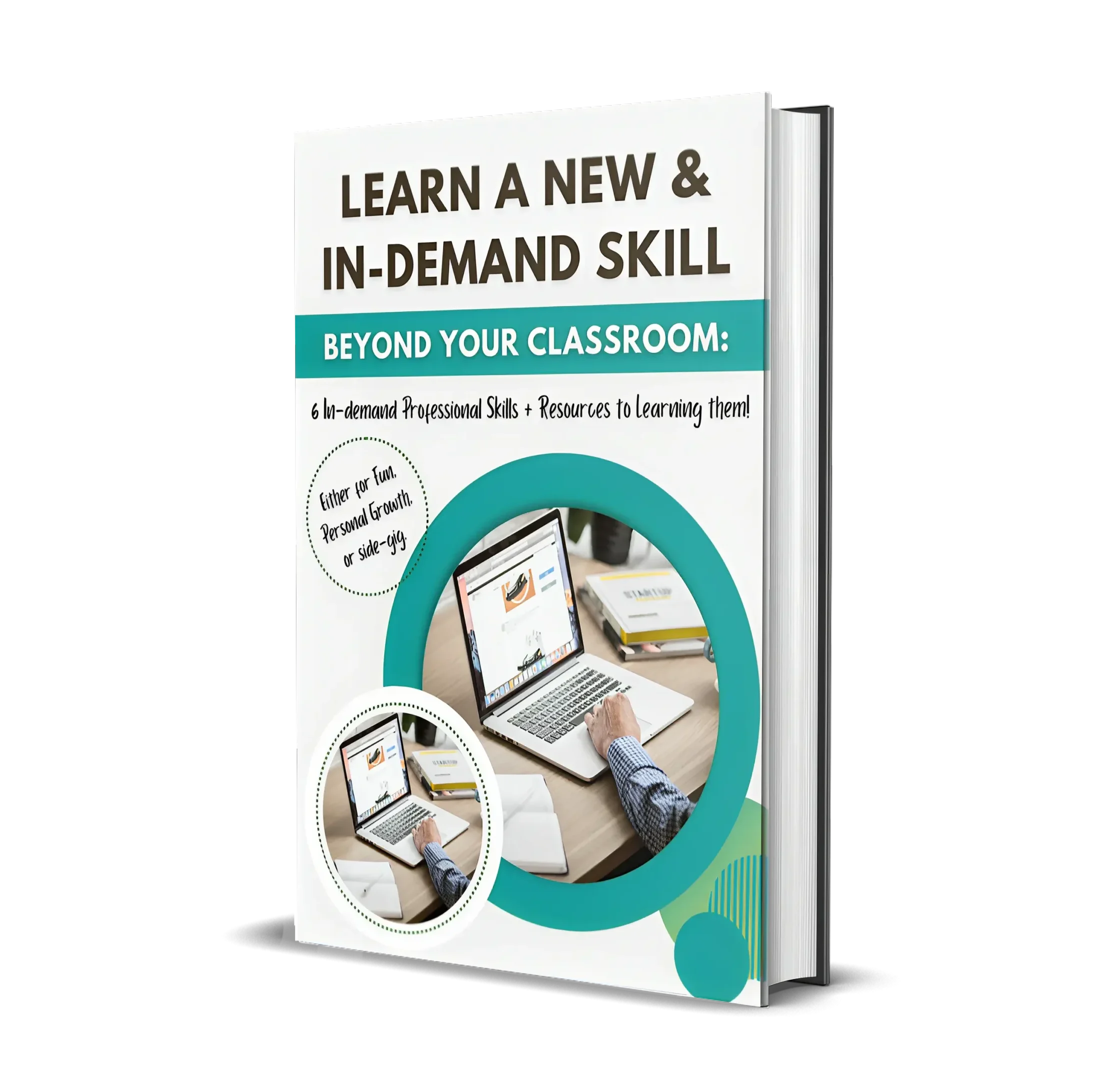
If you are a student, there is a high probability that you have experienced both types of learning environments—Online classes and Offline classes.
Online classes gained popularity in India and worldwide, particularly during the pandemic and lockdown when attending offline classes was not feasible.
Whether you are interested in exploring these two learning environments or are seeking points for an essay or group discussion on the topic of Online Classes vs. Offline Classes, be sure to read this article until the end for valuable insights.
In this article, we will go in-depth and tell you all the advantages and disadvantages of both learning modes, what students prefer more, and who are online and offline classes best suited for.
You can also take a look at our ‘table of contents’ and jump on a specific topic that you’re more interested in…
What are Online and Offline Classes?

Online classes refer to educational courses conducted over the Internet through an app or website, where students can access lectures, assignments, and discussions remotely using digital tools. These classes offer flexibility in terms of time and location, allowing students to learn virtually anywhere with an internet connection.
On the other hand, offline classes, also known as traditional or in-person classes, take place in physical classrooms or learning environments. Students attend these classes in person, interacting directly with instructors and peers. Offline classes follow a set schedule and require students to be present at a specific location, providing a more traditional and structured approach to education.
The choice between online and offline classes often depends on individual preferences, learning styles, and the nature of the course or program. Both formats have their advantages and drawbacks (that we later discuss), and the decision may be influenced by factors such as convenience, access, and the need for face-to-face interaction.
How has online class culture evolved?
Online class culture has changed a lot over time. In the beginning, it was mostly about watching lectures on a computer.
However, now, things are way more interactive. Students can chat with each other during class, ask questions instantly, and even work on group projects online. Teachers use cool tools to make lessons interesting, like videos and interactive quizzes. Plus, there are more resources available, like online textbooks and study guides.
It’s not just a virtual classroom; it’s a whole online community where learning is more fun and flexible. What’s surprising is now you can also pursue degree programs with online learning. Overall, online class culture has come a long way and keeps getting better!
Online and Offline Learning Statistics: What Students Prefer?
Now let’s talk about some statistics and facts about online learning and offline learning and see what students prefer more. I’m sure these facts can leave you astonished…
- The online learning market has grown by 900% since its inception in 2000.
- 70% of students believe online learning is superior to traditional classroom learning.
- The number of online learning users is projected to reach 57 million by 2027.
- 63% of students in the US engage in online learning activities daily.
- Online learning can reduce the time needed to learn a subject by 40% to 60%.
- 81% of students claim that digital technology and online learning help improve their grades.
- Online learning increases student retention rates by up to 60%.
For more information on these stats, you can refer to this website: Online Learning Statistics in 2024
Read also: 20 Best Online Learning Platforms in 2024
Advantages of Online Classes: [Pros]

Online classes, also known as virtual or remote learning, have become increasingly popular, especially in recent times. Like any educational approach, online classes come with both advantages and disadvantages.
Let’s discuss first the advantages of online learning…
Disadvantages of Online Classes: [Cons]
Here are the major disadvantages of online classes…
Now, you’re aware of all the advantages and disadvantages or drawbacks of online classes. Let’s discuss who is online learning or classes ideal for…
Who is Online Learning Best Suited for?
Online classes can be well-suited for various individuals, but the effectiveness of online learning can depend on personal preferences, learning styles, and specific circumstances.
In general, I find online classes particularly beneficial for these groups of people:
While these groups may benefit from online classes, it’s essential to recognize that individual preferences vary. Furthermore, the suitability of online classes ultimately depends on the individual’s learning style, goals, and ability to adapt to a more independent learning environment.
Let’s talk about offline classes now…
Advantages of Offline Classes: [Pros]

Offline classes, also known as traditional or in-person classes, have their own set of advantages and disadvantages. Here are the major advantages of offline classes…
Disadvantages of Offline Classes: [Cons]
Here are the disadvantages of offline learning…
Ultimately, the choice between offline and online classes depends on various factors, including personal preferences, learning styles, and the nature of the subject being studied.
Who is Offline Learning Best Suited for?
Offline classes, or traditional face-to-face classroom settings, are often considered suitable for a wide range of students, but there are certain characteristics and preferences that may make offline classes particularly beneficial for certain individuals.
In general, I find offline classes well-suited for these groups…
It’s important to note that the choice between offline and online classes is subjective, and individual preferences play a significant role. However, many educational institutions now offer blended learning options that combine aspects of both online and offline instruction to cater to diverse learning needs.
Read more: How to balance academics with life?
Online Classes Vs Offline Classes: Which is better?
So, In online vs offline classes, which is better? Well, the choice between online and offline classes depends on individual preferences and circumstances.
As we discussed above, online classes offer flexibility and accessibility, catering to diverse schedules and locations. They suit self-motivated learners and those with technology access.
However, offline classes provide in-person interactions, hands-on experiences, and a structured environment, benefiting social and hands-on learners.
The effectiveness of each mode depends on the student’s learning style, discipline, and the nature of the subject. Blended learning, combining elements of both, emerges as a compromise, offering flexibility and personal interactions.
Ultimately, the “better” option varies, emphasizing the importance of considering individual needs and the nature of the educational experience.
Now It’s Your Turn:
I hope you found this comprehensive guide on online vs offline classes enjoyable. We’ve explored the pros and cons of both learning modes, aiming to help you discern which is more preferable for students.
It’s crucial to recognize that online and offline classes cater to different student interests, convenience, and adaptability. However, I believe online education is poised to be the future of learning, and embracing this digital learning culture is essential. Once you acclimate to online learning, you can pursue various courses to enhance your skills and advance your career, all from the comfort of your home.
Now, I’d like to hear from you:
Which type of classes do you consider best for your learning-Online or Offline Classes? And, What are your thoughts on these two learning cultures?
Feel free to share your thoughts in the comments.
FAQs on Online Classes Vs Offline Classes:
What is the difference between online and offline in points?
Online classes offer flexibility, accessibility, and a self-paced environment, suitable for tech-savvy and independent learners. They may lack in-person interactions and hands-on experiences. Offline classes provide a structured, in-person learning environment, fostering social interactions, hands-on activities, and immediate support. The choice depends on individual preferences, learning styles, and access to technology. Blended learning, combining aspects of both, addresses diverse needs.
What are the 10 benefits of online classes?
Online classes can provide a lot of benefits. Here are the 10 benefits of online classes…
1. Online classes allow students to learn at their own pace and on their schedule.
2. Students from various locations can access courses, breaking down geographical barriers.
3. Reduced commuting and housing expenses make online classes more affordable for many students.
4. Multimedia resources enhance the learning experience with videos, simulations, and interactive content.
5. Students can progress at their own speed, accommodating different learning styles and abilities.
6. Online platforms facilitate collaboration among students from diverse backgrounds.
7. Some online courses offer personalized feedback and adaptive learning tools.
8. Virtual environments may encourage participation, benefiting introverted or shy students.
9. Students develop digital literacy and proficiency in online collaboration tools.
10. Online courses provide opportunities for professional development and acquiring new skills.
